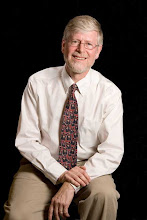
Here is the beginning of a list of writers whose work I admire for their aesthetic excellence, astute insight into the human condition, and open Christian commitment (although, like much of their writing, it is understated).
The list is in no particular order and will be continued in pieces later on.
The first group to mention must be The Inklings, the 1930s-40s circle of Oxford/Cambridge intellectuals that included CS Lewis and his chum JRR Tolkien who brought him to the Faith, Dorothy Sayers, and Charles Williams.
Lewis is well-known now for the "Narnia" fantasy novels that are being made into fine films these days (that's "Aslan" in the photo). His science-fiction trilogy made my head spin as an undergraduate (begin with "Out of the Silent Planet"), and his other 'fantasy' work such as "The Screwtape Letters" and "The Great Divorce" are funny yet forceful explanations of the Christian worldview. "Mere Christianity", a series of BBC radio talks delivered during WWII, is a gently thoughtful exploration of Christian claims meant for curious and sincere seekers. The list of his works is long. He is always a welcome companion, especially for those who have come to the Faith later in life, as he did.
Tolkien didn't care for the open allegory of Lewis' Narnia tales, but his own Catholic worldview is evident - though more deeply - in his epic, "The Lord of the Rings." The descent of Gollum into disfigured madness by his addiction to the ring's illusory power is a sign of humanity's fallenness. Redemption is possible - even Gollum nearly emerges from his obsession - but a pattern of choices for power over wholeness leads to his destruction. Tolkien's elaborate mythology is, at its heart, a biblical view of origins and the order of things.
Sayers was troubled in many ways, but her detective, Lord Peter Wimsey, was guided by a Biblical concern for justice. Her translation of Dante is, well, divine.
Williams is the lesser-known fantasist of the group because his work is, shall we say, weirder. I call him the Christian HP Lovecraft. His fiction contains occultish elements (which turn off conservative believers), but his interest is always in showing that the worlds of the seen and the unseen are not far apart at all. I think his rather ornate 19-teens style puts off many modern readers who prefer the plainer prose of Lewis or the poetic (but readable) prose of Tolkien.
I'll list more contemporary writers later - and older ones, too. It's a long list.

No comments:
Post a Comment